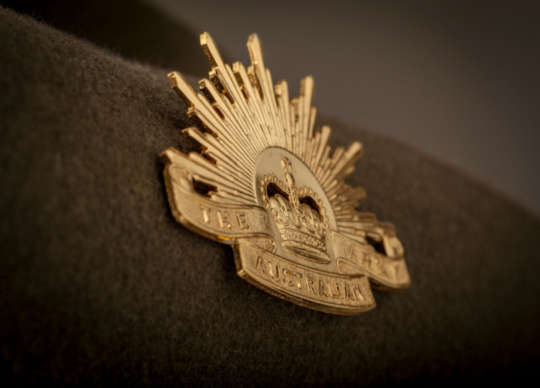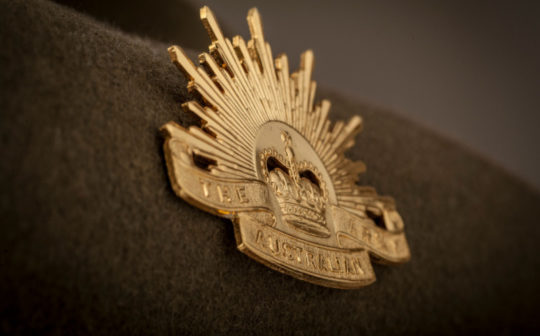
Statement On Sexual Misconduct in The Australian Defence Force as published online by the Australian Government, Defence.
There is no place for sexual misconduct in Defence. All allegations are taken very seriously. Incidents of sexual misconduct do not align with Defence values.
Defence acknowledges our previous failures to adequately handle sexual misconduct incidents. Defence is committed to doing better. Since 2012, Defence has established several pathways to address both current and historic sexual misconduct complaints in the Australian Defence Force (ADF).
Defence has established systems, training and processes to educate our people and seek to prevent sexual misconduct. Defence maintains a victim-centric, trauma-informed approach to support individuals to report sexual misconduct. Defence continually reviews its policies and processes to minimise the risk of incidents and maintain a trauma‑informed approach to managing sexual misconduct.
Defence seeks to ensure it has an environment where individuals feel safe to report and have access to support services through employing the principles of safety, trust, choice, collaboration, and empowerment.
Any ADF member who experiences sexual misconduct is strongly encouraged and supported to report the incident. Victims who wish to report an incident have a range of options, including direct engagement with State or Territory Police, or the Australian Federal Police, independent of Defence. Victims can also choose to report to Defence through the military police, or their chain of command.
Defence imposes strong reporting obligations on its people, while enabling victims to have confidential conversations with support services and close friends. Defence encourages its people, who become aware of an alleged sexual misconduct, to report the incident immediately through established reporting processes. Commanders and managers have an obligation to report sexual offences to the military police.
All victims are encouraged and supported to report sexual offences to relevant State or territory Police. For sexual offences that are investigated by civilian police, charging and prosecution decisions are a matter for relevant civilian police and Director of Public Prosecutions.
In all cases of sexual misconduct, if the alleged perpetrator is an ADF member and if the victim agrees to take action, Defence will consider disciplinary or administrative action. This may be in addition to any criminal process. Individuals accused of sexual misconduct are entitled to the presumption of innocence and provided support while the matter is investigated.
Where sexual offence allegations are made, the victim’s preferences to take action are given significant consideration. If the victim chooses to report to civilian police, Defence will support them to do so and will assist with any investigation. If the victim requests military police to investigate, military police can and will investigate in accordance with Commonwealth and/or ACT legislation. Where an offence occurs overseas, and Defence has jurisdiction, military police have carriage of such matters.
The independent Director of Military Prosecutions will decide whether to prosecute a sexual offence matter inside the military discipline system.
Defence respects the privacy and confidentiality of victims and will not comment on individual matters.
There are a number of 24/7 confidential support services available to impacted individuals such as the Sexual Misconduct Prevention and Response Office (SeMPRO). If you or someone you know is a current or former serving ADF member and requires support, please contact any of the below specialised counselling services and resources. Defence supports and encourages people to access confidential assistance from the internal or external service that best meets their needs.
- Sexual Misconduct Prevention and Response Office (SeMPRO) at sempro@defence.gov.au or (1800 736 776 [1800 SeMPRO])
- The Defence Member and Family Helpline at memberandfamilyhelpline@defence.gov.au or 1800 624 608
- Defence All-hours Support Line (ASL) (1800 628 036)
- Employee Assistance Program Portal at http://drnet.defence.gov.au/People/WHS/Employee-Assistance-Program/pages/Employee-Assistance-Program.aspx or 1300 687 327 [1300 OUR EAP]
- ADF health services accessed through Garrison Health Centres (https://www.defence.gov.au/adf-members-families/health-well-being/garrison/adf-mental-health-services#MentalHealthServicescontact).
- Online through ADF’s Mental Health and Psychology Services (https://www.defence.gov.au/adf-members-families/health-well-being/services-support-fighting-fit/need-help-now)
- The ADF Chaplaincy Services (http://drnet/People/Policy/ADF-PAC-Policy/Pages/ADF-Chaplaincy-Policy.aspx) provide a 24/7 on-call 1300 DEFENCE (1300 333 362)
- Lifeline: www.lifeline.org.au (13 11 14)
Definitions
Defence uses the term ‘sexual misconduct’ to encompass the spectrum of unwanted and unwelcome sexualised behaviours. Applying the term ‘sexual misconduct’ to describe all unwanted sexualised behaviours is common but not universal. Terms used by other agencies to cover the full range of behaviours include ‘sexual harassment’ and ‘sexual assault’. Defence uses those terms to exclusively reflect specific behaviours as they are defined in legislation.
Defence defines the term ‘Sexual offences’ as acts, or intent of acts, of a sexual nature against another person which constitutes a criminal offence. Sexual offences are defined in various Commonwealth, state, and territory legislation. Specific offences differ across the various jurisdictions but are broadly categorised as sexual assaults and non-assaultive sexual offences






